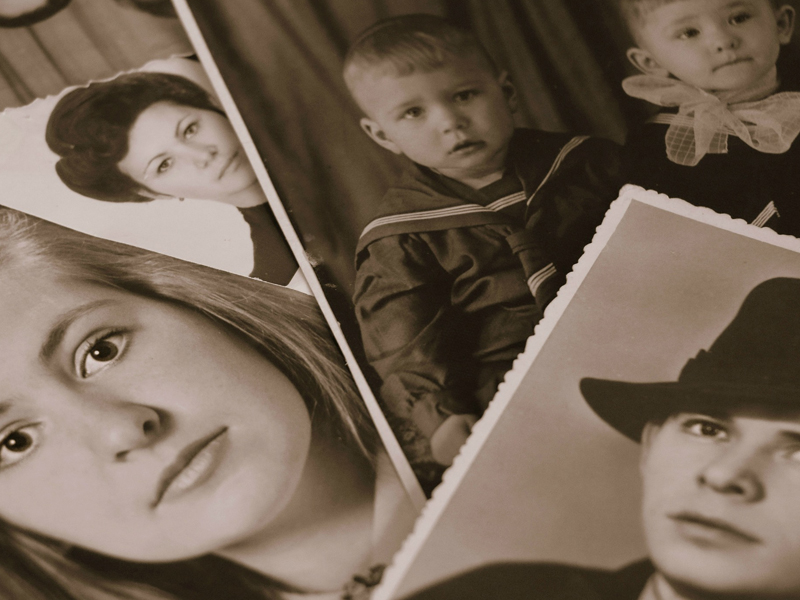GPs can be faced with the cascading impact on the health of family members triggered by a traumatic event
GPs can be faced with the cascading impact on the health of a wide range of family members triggered by a traumatic event
GPs care for families. That care often occurs across two, three or sometimes four generations. Events including illnesses affecting one generation may often have an impact on other generations.
The composition and relations within nuclear families is such that sharing the impact of traumatic events is inescapable. Perhaps we should be grateful that this still takes place as it also means that support can be offered within families by family members helping one another, assisted only where necessary by health professionals, including, most importantly, GPs.
As GPs, we often witness traumatic events plaguing certain families which, for apparently unexplained reasons, appear excessive and out of the norm. We are left wondering why should so much misfortune afflict this family? What went wrong? What did they do to deserve this? What could have been done to prevent it? And now that it has happened, what interventions and support can we as GPs put in place to minimise the harm caused by these traumatic events?
The traumatic trigger for the cascade of events that follow may be an accident, a serious illness, relationship breakdown or, as in the case described here, a child “gone missing”.
The impact on other family members may not only be psychological (depression, anxiety, insomnia, post-traumatic stress disorder) but we also witness the sudden emergence of physical illnesses which serves to emphasise the significance of the mind–body nexus.
I first met Alexa when she was three years old. At that stage, I had looked after her grandparents George and Sofia for 10 years. George was aged 65 and Sofia was aged 63.
George had a history of obesity, hypertension and type 2 diabetes. Sofia had a history of hypertension, set against a background of renal disease thought to be IgA nephropathy. George and Sofia had until recently run a suburban fruit shop which they sold and were now happy to be retired.
Along with many other Greek families, they had migrated to Australia in the early 1960s and were proud of their achievements, having raised a daughter, Anna, who was now an industrial chemist and married to Michael, an accountant. Naturally they doted over their only granddaughter Alexa, and now that they were retired, they spent more time looking after her while Anna and Michael were at work.
Anna brought Alexa to see me. She had a history of atopy, which included eczema and asthma. There was a strong family history of atopy, especially on Michael’s side of the family. The reason for the visit was an upper respiratory illness which had triggered an exacerbation of the asthma. Both Anna and Michael were in good health and in their mid-30s.
Over the next decade I saw the three generations of this family on a multitude of occasions.
George’s health deteriorated and he developed ischaemic heart disease in his early 70s. Sadly Sofia’s health took a similar course and she needed dialysis. Anna and Michael remained well and as Alexa reached her teens she would have only the occasional asthma attack. She was a high-achieving student and seemed well adjusted.
Things seemed to go very wrong when she turned 15. Over the ensuing 12 months she refused to take her asthma preventers, spent long hours on internet chat groups, refused to attend family functions, and school reports showed deteriorating performance as well as notable absences from class. Parent-teacher interviews raised suspicions about drug use which Alexa vehemently denied.
In the months that followed there were nights and weekends that Alexa said she was spending at her schoolfriend’s house, but this was not confirmed. It then emerged she was in a relationship with a 22-year-old university dropout who lived in a share-house with a number of drug addicts who belonged to a strange religious cult. Eventually, at the age of 16, she left home and made no contact with her parents for weeks on end.
Much of this information was relayed to me by family members as they began to suffer serious health problems over this 12-month period.
Alexa’s father, Michael, presented with rectal bleeding and diarrhoea. Investigations revealed ulcerative colitis. Alexa’s grandfather had a series of transient ischaemic attacks culminating in a stroke which left him with a mild left hemiplegia. Alexa’s grandmother missed some of her dialysis sessions and required treatment in intensive care for renal failure with cardiac complications. Anna struggled to keep working and to keep the family together.
We are well aware of the link between stress and physical illness. However, rarely had I seen such devastation occurring in one family in the course of several months.
I was left to coordinate care for three family members, while trying to provide emotional support to the fourth and hoping throughout all of this that Alexa would make an effort to restore family unity.
Family, and particularly parents, can be very forgiving of their children’s misdemeanours. Ultimately they are concerned for the wellbeing of their children and will do anything to ensure their children thrive.
Tolerance, understanding and rapprochement prevailed in this case, but it took two years and left much irreparable damage along the way.
Leon Piterman is Professor of General Practice at Monash University and has been in clinical practice for almost 40 years


